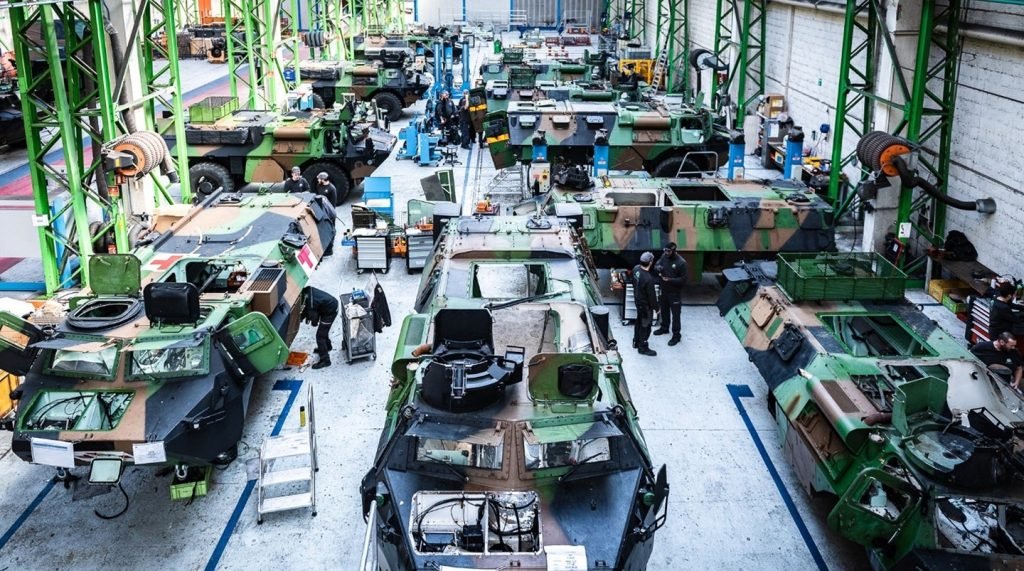
Stifled by the increase in demand for military equipment, French defence officials have agreed to strengthen the workforce by mobilising seasoned ‘industrial reservists’.
Under France’s Defence Industrial Reserve (RID) system, these remunerated professionals will support two French armoured-vehicle manufacturers, ARQUUS and KNDS France, for tens days a year over the next five years according to two partnership agreements signed on 12 November 2024.
RID is part of an effort to mobilise the war economy in the event of a major crisis. As part of this, France aims to strengthen the capacity of its arms industry.
Typically, the industrial reservists will hold French nationality and relevant skills in manufacturing, machining, boilermaking, non-destructive testing, product quality, among others.
It is hoped that RID will facilitate the participation of 3,000 resevists into the defence industrial workforce or to state industrialists (SMITer, SLM, SIAe, SIMU) by 2030.
The government first implemented contracts for the engagement of reservists in October 2023.
Access the most comprehensive Company Profiles
on the market, powered by GlobalData. Save hours of research. Gain competitive edge.

Company Profile – free
sample
Your download email will arrive shortly
We are confident about the
unique
quality of our Company Profiles. However, we want you to make the most
beneficial
decision for your business, so we offer a free sample that you can download by
submitting the below form
By GlobalData
European defence market attractiveness
The wheels of Europe’s defence industry have, once again, begun to turn after years of inertia. Though Europe has responded to the new security demands, it is more difficult to sustain their efforts proactively.
European countries are tied between their own national procurement and their strategic contributions to Ukraine’s war effort since Russia’s full-scale invasion of the nation in 2022. The French government have provided €2.6bn ($2.7bn) in military assistance to Ukraine while they continue to come just under the Nato defence spending target of 2% of its GDP. However, they aim to reach this target before the end of the year.
For France, the RID system will grease the wheels of its sovereign defence industrial base by increasing the capacity of French companies to meet the global demand for military equipment.
With 5,000 companies and 400,000 jobs in the defence sector (including 165,000 direct jobs in the armament sector), French industry accounts for more than 25% of European capabilities.
Eager to improve at the continental level, the European Union introduced an inaugural strategy to increase their defence market attractiveness. This will close a widening gap with American offerings that have saturated Europe’s defence market in the last few decades.
A global crisis
Of course, all this relies on cultivating a sustainable workforce – which has become a global problem.
Across the Atlantic, the US submarine industrial base has come under scrutiny for lengthy delays in delivery times and this partly comes down to workforce issues.
Speaking to Bartlett Maritime, a corporation that helps to rectify the US Navy’s submarine shortfall, they revealed new ways to maintain industrial skills such as implementing a rotational workforce concept.
The UK also leans on contingency workers in a similar way as the French RID system. Guidant Global’s client solutions director and British Army veteran, Joel Forrester, revealed that leaning on contingent workers provides highly skilled people to the defence industrial base more quickly.
“It provides skills that are lacking out there from the permanent workforce,” he suggested. The predictions are that over the next four to five years, 50% of the workforce will be contingent workers.









